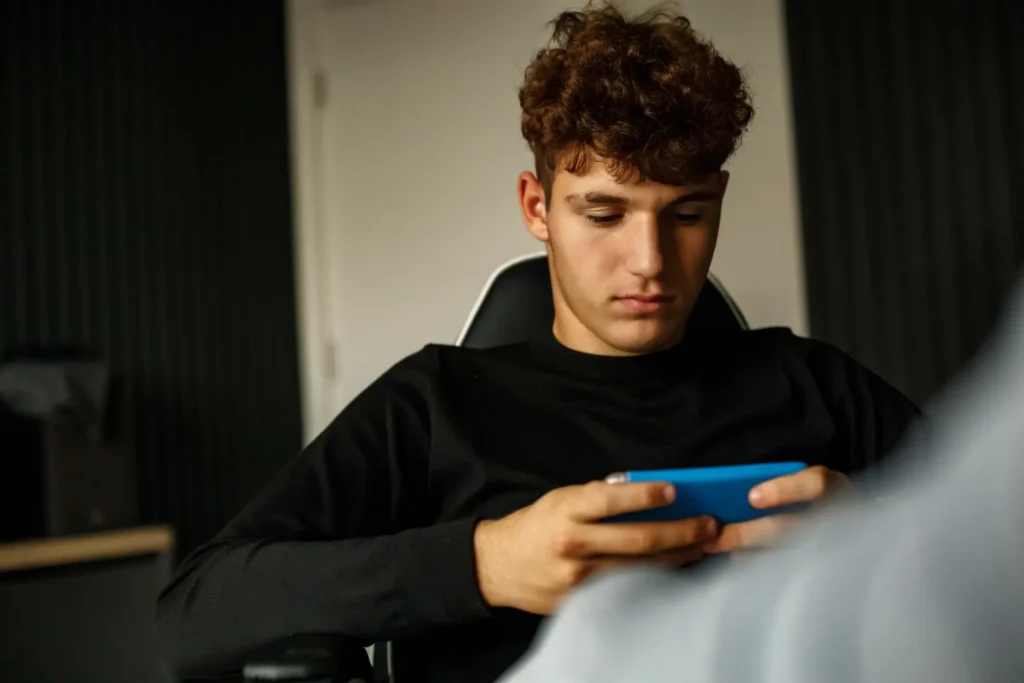Understand Your Role As a Parent
Recently, I sat on the beach watching my son surf. As I relaxed, I began to observe the pattern of the waves in comparison to my son’s ability or desire to catch them. I noticed the many other people out in the water, and their presence in comparison to my son’s position. I observed the unspoken rules that take place out in the ocean where an unpredictable force of nature combines with a small community of often strangers. My teen waited on his board, noted the patterns of waves and people around him. Decided when to hold back and let someone else take their turn and when to charge a wave when it was clearly, finally his turn. His head bobbed up and down on waves that were not worth the paddle, sitting confidently on a board that would take him where he wanted to go, but only when the timing was just right.
Let Your Teen Learn While You Can Only Watch
The realization that I could not assist him in any of his decisions out in the water washed over me. As a spectator on the beach for these couple of hours in his life, I couldn’t tell the other surfers to give him his turn when I thought it was time. I couldn’t ask the waves to change their course. There was nothing to do but watch, and be there ready if he wiped out or washed up. Everything else was up to him. I watched my son navigate the personalities of the ocean and the other surfers, finding his footing and where he belonged in the line up. And I watched him do all of this, with no help from me.
There was a slight nagging sense of helplessness there, but also a feeling of pride that my child could independently navigate life out in the surf. I knew that I needed to beach myself more often, in other areas of his life as well; that becoming independent in this phase of life is not only necessary for the transition towards adulthood, but valued and desired by our teens as well. While our parental intentions may be set to let our teens surf on thir own, letting go isn’t always that easy and may take some conscious effort.
So, how do we keep our feet in the sand, while allowing our young teens to explore the ocean without us? How do we let go just enough to foster the independence our teens need and crave?
Practical Steps to Fostering Independence in Your Teen
Here are seven practical steps to help your teen become more independent:
1. Baby steps
Baby steps are just fine. If your teen has yet to walk around the block on their own without your assistance, it would be much too big a leap to ask them to ride the bus downtown without you. Break goals up into small and manageable tasks. If you would like your teen to try something new that will help them gain independence, it is helpful to try it with them a couple of times first. Map the bus route out together, take the journey a couple of times together and then allow them and encourage them to take the bus by themselves the next time. You have supported them and helped to create comfort in the unknown, and now they are ready to try on their own.
2. Set boundaries and expectations
Some teens are not nervous at all to take flight and thus can cause some anxiety for their parents who are not ready for them to fly solo just yet. Set clear boundaries and expectations and be ready to have a meaningful consequence if boundaries and expectations are not met.
Examples of boundaries and expectations
- I will allow you to go to _______. You need to be home by ______.
- When you get to ________, I expect you to call/text me.
- You can go with ________, but I would like to talk to their parent first.
- My expectation is that you always wear a helmet.
- The boundary is here. You may not go past this point when out without me.
- A boundary I have is that you may not be at _________ house without a parent home.
- My expectation is that if you find yourself in an uncomfortable situation, you will call me and I will come help you.
Examples of consequences for not meeting expectations and boundaries
- You didn’t return home at the agreed upon time. Our trust has been broken and you won’t be able to go the next time.
- You didn’t call or check in like we agreed upon. Your phone is meant to help us communicate. I need to hold on to it for now, until we can try again.
- We agreed that you would wear your helmet and you did not. It is not safe for you to use your bike/scooter/etc like that, so you will need some time away from it.
- You went past the boundary we agreed upon. I won’t be able to allow you to go again for ____ until I feel like you can try again.
Young teens can feel stifled by parent boundaries and expectations, but it is more important to set up these systems of trust before the stakes change when teens are older and have the opportunity to drive. Working with your young teen to uphold boundaries and expectations with clear sets of consequences will support healthy development towards the later teen years.
3. Use Tracking Apps
There are MANY apps that families can use to track each other’s phones if needed. These are amazing applications that can help the whole family stay connected. They are not however always reliable and they can and will be outsmarted. While it would be ideal to rely on trust first and foremost with your young teen, there are times when even the most trustworthy young person feels they need to deter their parents. Which brings us to the next point.
4. Be open and honest
Most kids want their parents to trust them and be proud of them. Teenage rebellion is a fairly natural stage in life however, and even the most upright citizen probably made a few questionable decisions in their teen years. Social image, social situations, peer pressure, and impressing friends are all factors to consider in a young teens life. Keep the lines of communication open and honest as much as possible. Use the language of expectations, boundaries, consequences, and trust with your teen often.
5. Privacy and monitoring your teen’s phone
This one could be controversial. Where does privacy begin and end for a young teen? Should they have total control to social media and their phone without parental involvement? Many experts believe young teens shouldn’t be using social media or phones really at all and much of the research suggests that delayed exposure to social media benefits our kids. Many parents agree, but find it difficult to implement this approach in real life. And if your teen already has a device with access to social media, perhaps the cat is already out of the bag so to speak. So, is checking their phone ok? This is a question to discuss with your teen as you set up the boundaries and expectations for the use of the phone you are allowing them to have. Some phrases to support this discussion could include:
- This is a phone I am allowing you to use. My expectation is that you do not use the following apps or social media sites.
- This is a phone I am allowing you to use, and with the use, I will check the phone every so often to see what the activity is.
6. Develop a sense of responsibility
In addition to monitoring our young teens to help support independence, there are also responsibilities that should come with growing older. Some areas that teens can and should help out with:
- Cleaning up their own space and bathroom
- Cleaning up shared spaces with the family
- Taking care of pets
- Doing their own laundry
- Learning to cook
- Keeping track of their schoolwork with less parental intervention.
- If a teen has never had these expectations, there is a learning curve in which parents need to model the skill, complete the skill WITH the teen first and then create the expectation that the teen be able to complete the chore independently. When considering a teen with neurodivergence, it is also important to use the same processes and strategies that are helpful for that teen in other areas of their learning day to help support new learning in the home or in the community. Create checklists, create systems of rewards and positive affirmations for jobs well done.
7. Instill confidence
Actively instill confidence in your teen as much as possible. While some teens are seeking independence, others may be fearful or anxious about navigating this world without their parent. In both scenarios, parents should strive to create confidence in areas that show growth in independence. Give compliments, praise a good effort, and buy into the idea that if something doesn’t work out, you can all try again. While it is difficult for parents to watch their child struggle, it is often in the struggle and in working through a problem that humans learn the most. Be there for your teen, but don’t fix everything for them. Let them work out their issues with friends, ask them to try to talk with their teacher before you do, encourage them to speak with their coach and not have you step in for them. In addition, teach them to accept an unfavorable outcome when appropriate. If they have a disagreement with a friend, allow them to be the one to repair the relationship. You can always be the place where your teen turns, but at this point, it is time for you to work more behind the scenes while they start to hear and understand their own voice.
Watching from the beach
And that is where the magic happens for our teens: Persevering through the struggle. It is why we parents can watch and cheer from the beach, but cannot help our teens stand up on that board. We have to allow them to work, and feel the absolute pride in one’s self when they achieve what they set out to do, all on their own. This is the challenge for many of us as parents because it is difficult to let go. It is hard to watch our kids wipe out. It is hard to watch them leave the water without catching a wave. We have to be willing to let them though, and to drive them back out to the beach another day so they can try again.









